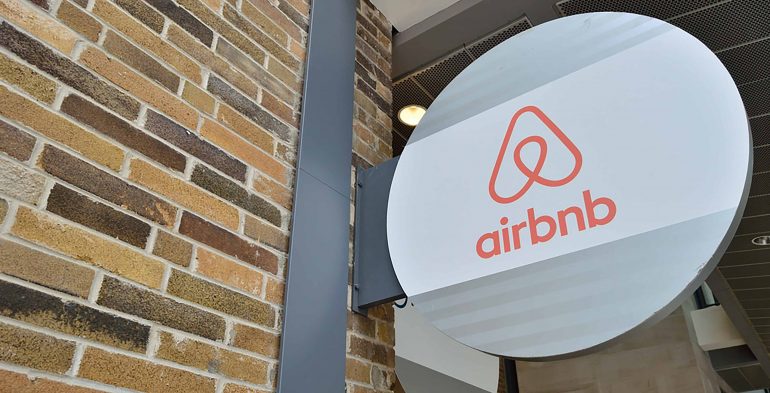Proposed short-term rental regulations in Toronto are closer than ever to coming to fruition, and if they do, it will render many of the city’s current Airbnb rentals illegal.
Starting next week, Toronto’s city council will be asked to review proposed regulations for the zoning and licensing of short-term rental services in Toronto.
“A short-term rental is not permitted in a dwelling unit that is not a principal residence.”
It’s important to note that council won’t be voting on criminalizing the establishment of short-term rentals like Airbnb. However, if council chooses to adopt these specific recommendations, current Airbnb listers will need to adjust their operations, otherwise they will be operating illegally.
The suggested rules would see the creation of an entirely new zoning category for short-term rentals that would allow Torontonians to offer up to three short-term rental rooms or their entire home, plus a secondary suite, while also firmly establishing who is permitted to rent out their residences.
Zoning proposal — to be reviewed on November 15, 2017
Chief among the city’s zoning amendments is a bylaw that establishes that only the ‘principal resident’ of a dwelling — house, apartment, townhouse, etc. — will be able to list that residence as a short-term rental.
“A short-term rental is not permitted in a dwelling unit that is not a principal residence,” reads an excerpt from the zoning report. “This restriction limits the ability to convert long-term housing units to accommodation for tourists.”
Which is to say, the city wants to avoid people buying or renting residences, only to convert those residences into makeshift, long-term Airbnb hotels.
The zoning bylaw report is relatively short and is greatly influenced by the licensing and registration report.
Licensing and registration report to be reviewed on November 16, 2017
While the zoning report seeks to establish that short-term rentals be formally made legal, the licensing and registration report seeks to establish the rules governing who can list their residences as well as which residences can be listed.
Some critics believe that the proposals don’t go far enough.
Perhaps most important of all of these recommendations is the suggestion that “short-term rental operators register with the City annually.”
This registration also entails paying an annual registration fee — the value of which has yet to be determined.
“No one shall operate or advertise any short-term rental that is not registered,” reads an excerpt from the licensing and registration report.
Additionally, principal residents can only list their dwelling to “provide sleeping accommodations for any rental period that is less than 28 consecutive days in exchange for payment.”
Primary residents must also keep records of any transaction related to their listings “for three years.”
These records must also include the total number of nights that a particular residence has been listed, as well as “any other information as required the executive director [of] municipal licensing and standards.”
The licensing and registration report also clarifies that principal residents can only have one principal residence at any time.
Primary residents can only list their dwellings for a total of 180 days each calendar year.
Understandably, short-term rentals can only be listed by someone who is 18 or older.
A word from the critics
The proposed regulations place a substantial number of restrictions on who precisely can list which residences for short-term rental, but some critics believe that the proposals don’t go far enough.
In an interview with the Toronto Star, advocacy group Fairbnb said that the regulations don’t require proof of permanent residence, which makes it too easy for Airbnb hosts to claim that they live at the location while in reality residing somewhere else.
“This non-requirement only gestures at regulation.”
“This non-requirement only gestures at regulation,” said Thorben Wieditz, part of Fairbnb, in an interview with the Star.
Fairbnb also argued that the ‘secondary suite’ allowance could be easily exploited.
While these reports will be tabled at council next week, a report addressing the taxation of short-term rentals will go to Mayor John Tory’s executive committee on November 29, 2017.
The November 29 committee report has not yet been released to the public.
All three reports are expected to go to a vote at a December council meeting.
Sameer Chhabra is a co-author on this story
This article was originally published on MobileSyrup

